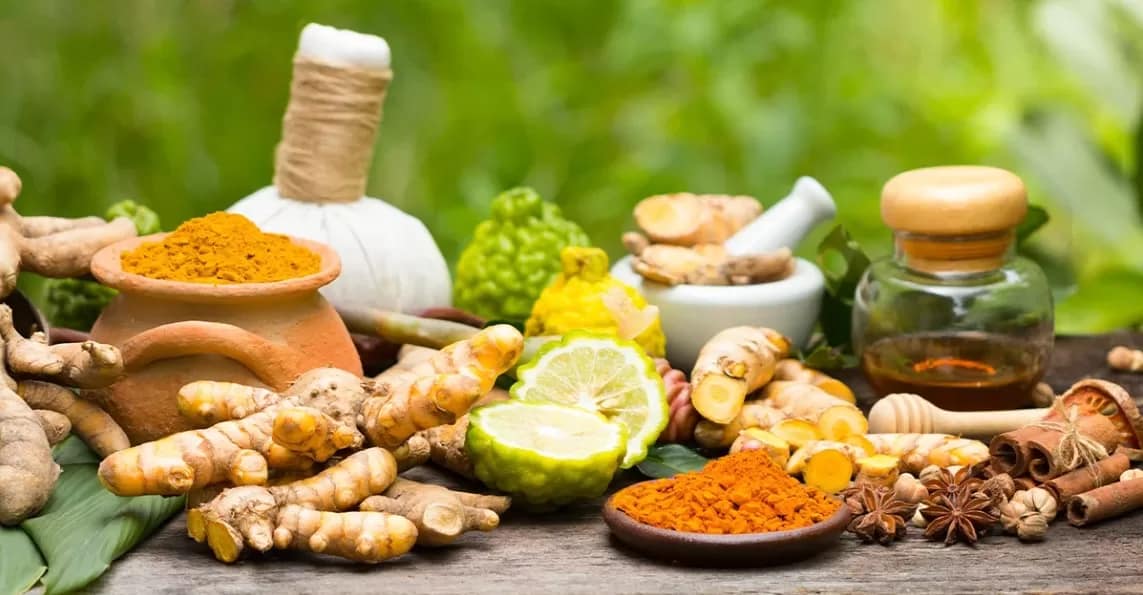Siddha medicine, a traditional system of medicine from ancient India, uses a wide range of herbs and spices to treat various health conditions. These herbs and spices are believed to have powerful healing properties and are used in combination with minerals and other natural substances to create complex formulations.
Here are some examples of herbs and spices commonly used in Siddha medicine:
Turmeric: This herb is widely used in Siddha medicine and is believed to have anti-inflammatory and antioxidant properties. It is used to treat a variety of conditions, including skin conditions, digestive issues, and joint pain.
Ginger: This spice is also widely used in Siddha medicine and is believed to have anti-inflammatory and antioxidant properties. It is used to treat a variety of conditions, including nausea, vomiting, and stomach cramps.
Holy basil: This herb is also known as Tulsi and is considered sacred in Siddha medicine. It is believed to have anti-inflammatory and antioxidant properties, and is used to treat a variety of conditions, including respiratory issues and stress.
Neem: This herb is widely used in Siddha medicine and is believed to have anti-inflammatory, anti-bacterial, and anti-fungal properties. It is used to treat a variety of conditions, including skin conditions and infections.
Licorice: This herb is also known as “Yashtimadhu” in Siddha Medicine and is believed to have anti-inflammatory, anti-ulcer and immunity-boosting properties. It is used to treat a variety of conditions, including respiratory issues and stomach ulcers.
Haritaki: This herb is also known as “Kadukkai” in Siddha Medicine and is believed to have laxative, anti-inflammatory, anti-ulcer and immunity-boosting properties. It is used to treat a variety of conditions, including digestive issues and respiratory issues.
These are just a few examples of the many herbs and spices used in Siddha medicine. It’s important to note that these herbs and spices should be used under the guidance of a qualified healthcare practitioner and that some of these may interact with medications.
















